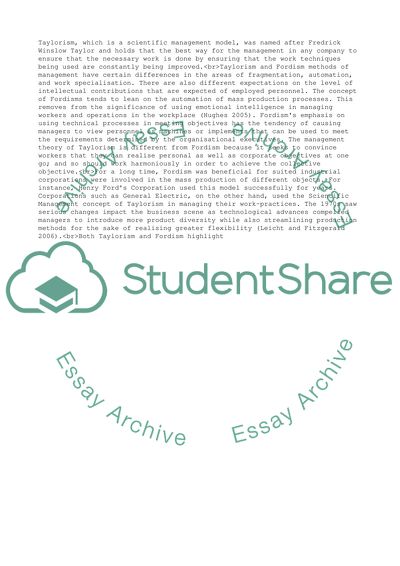Cite this document
(The Impact of Taylorism and Fordism on Management Practices Essay Example | Topics and Well Written Essays - 2000 words - 1, n.d.)
The Impact of Taylorism and Fordism on Management Practices Essay Example | Topics and Well Written Essays - 2000 words - 1. https://studentshare.org/management/1812823-research-and-critically-discuss-the-impact-of-taylorism-and-fordism-on-contemporary-management-approaches-and-practices
The Impact of Taylorism and Fordism on Management Practices Essay Example | Topics and Well Written Essays - 2000 words - 1. https://studentshare.org/management/1812823-research-and-critically-discuss-the-impact-of-taylorism-and-fordism-on-contemporary-management-approaches-and-practices
(The Impact of Taylorism and Fordism on Management Practices Essay Example | Topics and Well Written Essays - 2000 Words - 1)
The Impact of Taylorism and Fordism on Management Practices Essay Example | Topics and Well Written Essays - 2000 Words - 1. https://studentshare.org/management/1812823-research-and-critically-discuss-the-impact-of-taylorism-and-fordism-on-contemporary-management-approaches-and-practices.
The Impact of Taylorism and Fordism on Management Practices Essay Example | Topics and Well Written Essays - 2000 Words - 1. https://studentshare.org/management/1812823-research-and-critically-discuss-the-impact-of-taylorism-and-fordism-on-contemporary-management-approaches-and-practices.
“The Impact of Taylorism and Fordism on Management Practices Essay Example | Topics and Well Written Essays - 2000 Words - 1”. https://studentshare.org/management/1812823-research-and-critically-discuss-the-impact-of-taylorism-and-fordism-on-contemporary-management-approaches-and-practices.


